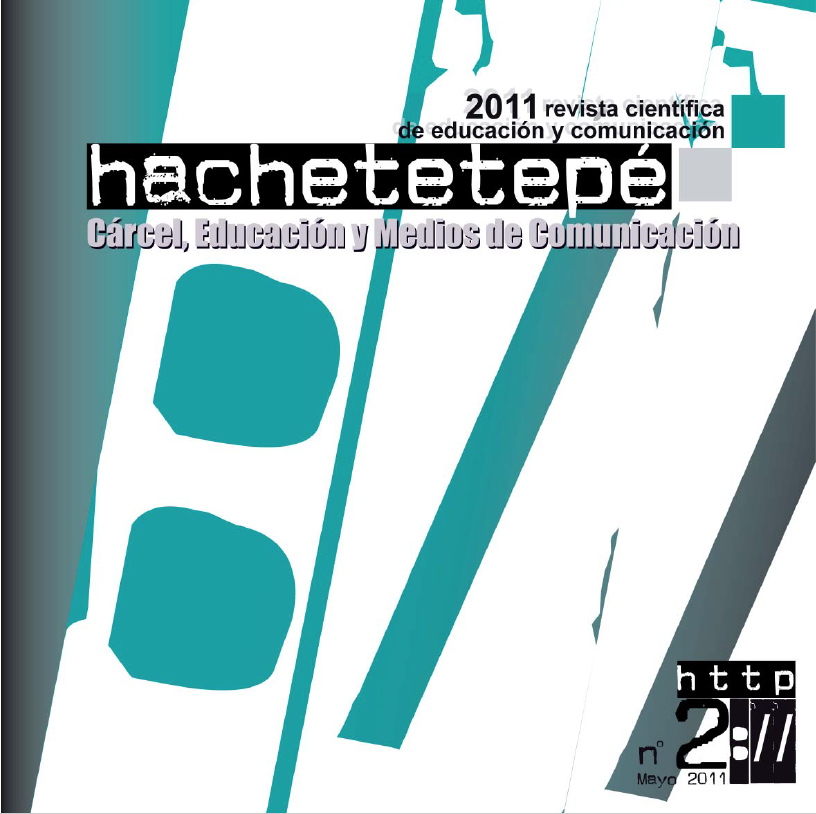Educative practics' cartography among (dis)enchantments, shrewdnesses and rules stablished by the actions of people immersed in the daily routine of prison.

Info
Abstract
How many times had we asked ourselves which is the actual purpose of prison? How many times had we wondered about the role of education (or lack of) in this environment?. In the author's opinion, jail is a hostile territory where human beings struggle to survive among their silences, as jail is also a learning place, but the question arising is about what do we really learn?. The article leads us into a state of wondering, questioning the actual role of educatuion in jail. Prison is a microuniverse with its own codes, but the experience and the educational programmes can be a helpful tool for personal empowerment and social rehabilitation.
Keywords
Downloads
How to Cite
License

This work is licensed under a Creative Commons Attribution-NonCommercial-NoDerivatives 4.0 International License.
Those authors who have published with this journal, accept the following terms:
- They will retain their copyright and guarantee the journal the right to first publication of their work, which will simultaneously be subject to the Creative Commons Attribution License . They may be copied, used, disseminated, transmitted and publicly displayed, provided that the authorship, url, and magazine are cited, and are not used for commercial purposes. No derivative works are allowed.
- They may adopt other non-exclusive license agreements for the distribution of the published version of the work (e.g., deposit it in an institutional telematic archive or publish it in a monographic volume) provided that the initial publication in this journal is indicated.
- Disseminate your work through the Internet (e.g., in institutional telematic archives or on your website) once the manuscript is accepted, which may lead to interesting exchanges and increased citations of the published work. (See The effect of open access).
Hachetetepé. Scientific journal of education and communication does not charge a fee for the submission of manuscripts or for the publication of its articles.
References
Bosi, E. (2003). O tempo vivo da memória: ensaios da psicologia social. São Paulo: Ateliê.
BRASIL. Lei de Execução Penal nº 7.210, de 11 de julho de 1984. http//www.legislação.planalto.gov.br/legislação (Consultada el 3 enero de 2006).
Certeau, M. (1996). A invenção do cotidiano: artes de fazer. Petrópolis: Rio de Janeiro: Vozes.
Freire, P. (2001). Pedagogia da autonomia: saberes necessários à prática educativa. São Paulo: Paz e Terra.
Foucault, M. (2002a). A arqueologia do saber. Rio de Janeiro: Forense Universitária.
Foucault, M. (2002b). Vigiar e punir: nascimento da prisão. Petrópolis, Rio de Janeiro: Vozes.
Foucault, M. (2004). Microfísica do poder. Rio de Janeiro: Graal.
Helena, H. (2005). A falência do sistema presidiário brasileiro. Pronunciamiento realizado en la sesión pública de 28.11.05. página 1-5. http/ www.senado.gov.br/agencia (Consultada el 30 noviembre de. 2006).
Libâneo, J. C. (2004). Pedagogia e pedagogos, para quê? São Paulo: Cortez.
Oralandi, E. P. (2005). Análise de discurso: princípios e procedimentos. Campinas: Pontes.
Preso (2006). “Horas depois de ser solto pela justiça”, en Primeira Página, Jacobina/BA, ano XIV, 712; 9, 19 agosto. 2006.

